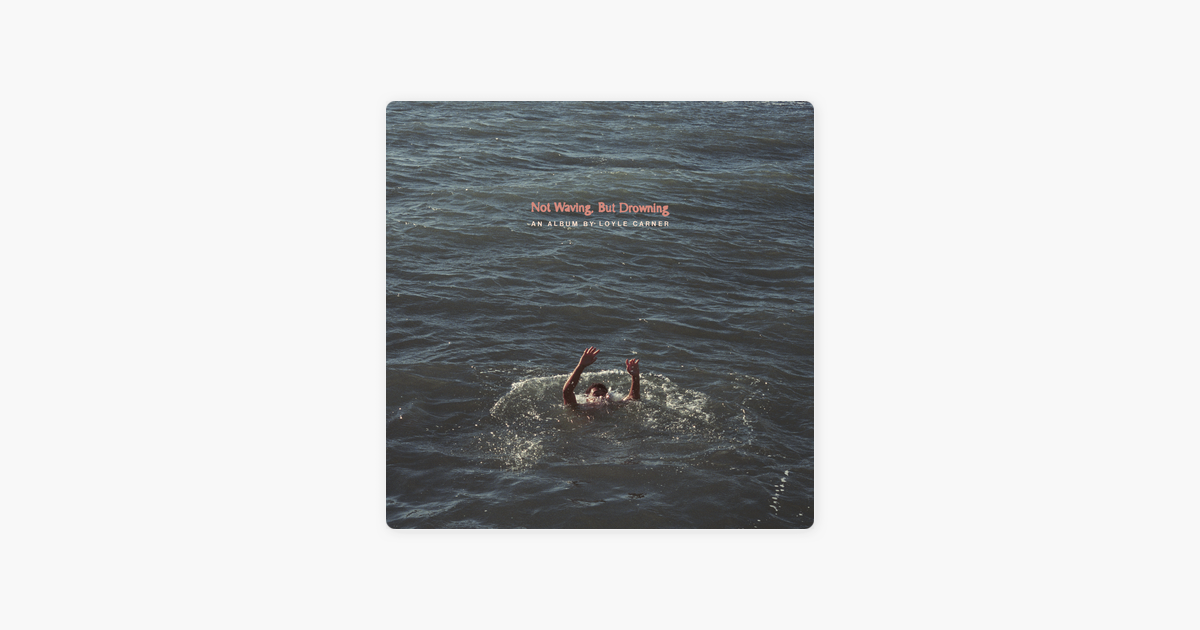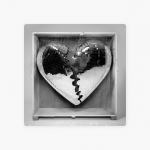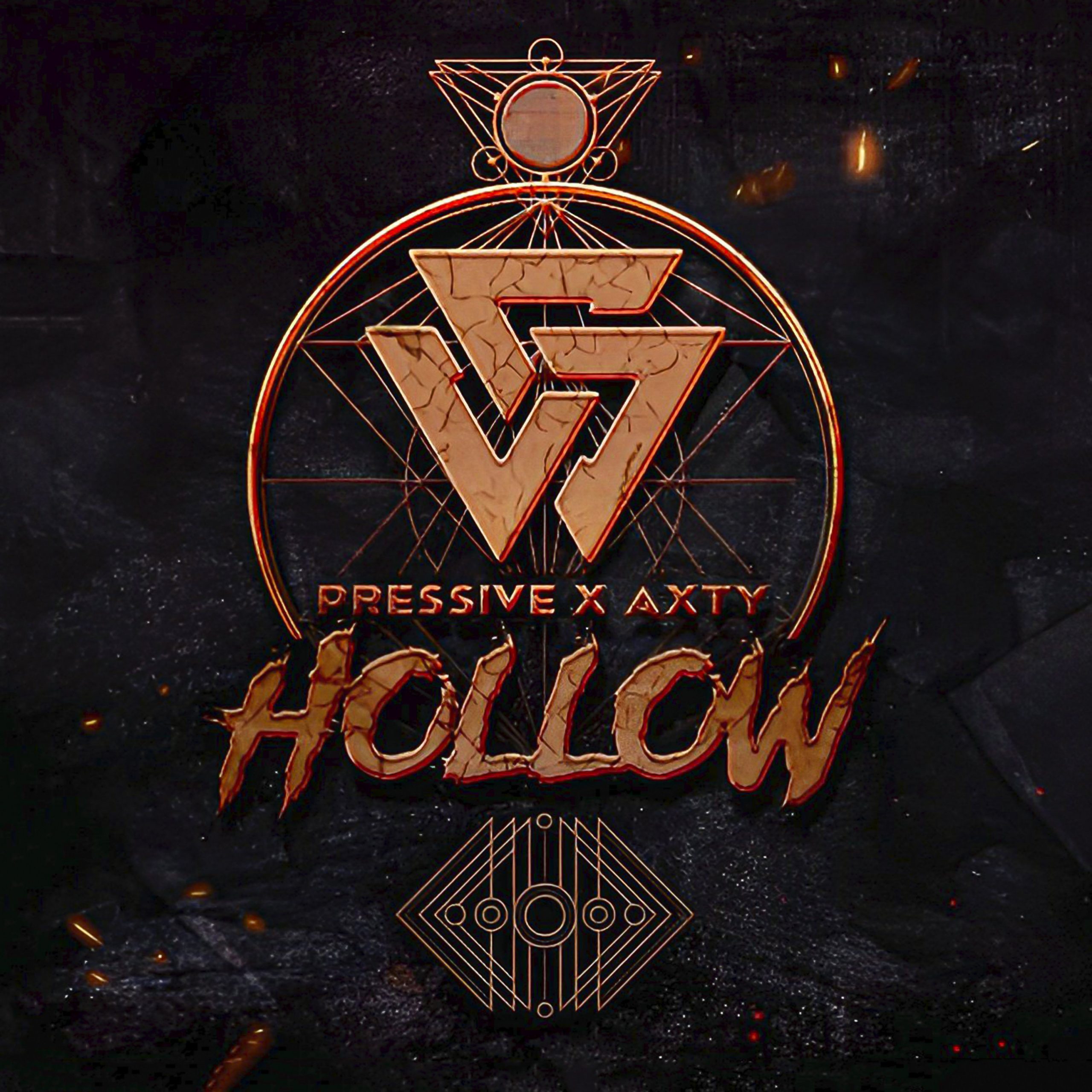
In 2017, Yesterday’s Gone established Loyle Carner as one of hip-hop’s more soul-baring, confessional songwriters. “I had to do a lot of work on myself,” he tells Apple Music. “I asked myself questions: Some were scary, some were cool.” We meet the south Londoner in a typically reflective mood on his intelligent, compelling, and jazzy second album. This time, however, he’s zooming out. “I’m happier in myself, which means I’m able to look at what’s stressful in the rest of the world around me,” he says. Explore these reactions with Carner’s track-by-track guide to Not Waving, But Drowning.
“Dear Jean”
“I was moving out, I’d fallen in love, and my mum was finding it tough—as was I—for us to not be as close anymore. This song was just for us, but it was important for me to have it on the album once I made it. It was just something to keep her going, and me, to be honest.”
“Angel”
“The lyric ‘Like the fire needs the air/I won’t burn unless you’re there’ means a lot to me. It’s from a 50 Cent tune [‘Hustler’s Ambition’]; the sample’s incredible. It’s about people who hate you or you hate. You need them to stick around because they’re your angels that keep you working hard. If it isn’t to support your family, it’s to prove to people who think you’re s**t that you’re not.”
“Ice Water”
“I was in a taxi on the way home from the single premiere of ‘Ottolenghi.’ The song came on and [I recorded on my phone] the driver saying, ‘What do you think of this?’ I’m not really in the habit of telling people that I make music, but I said it’s my song. It came full circle because he told his son—who’s a fan—he was with me. What you hear is me and his son talking and it going back to the song on the radio, which is cool.”
“Ottolenghi”
“I was reading one of [Yotam] Ottolenghi’s cookbooks called Jerusalem. There’s an issue at the moment with anti-Semitism through the context of Syria. I’m on a train and this guy says, ‘You can’t read that Bible around here. There’s no Jews here.’ I said, ‘Dude, chill. I’m not a Jew, but what if I was? It’s a cookbook.’ I text Ottolenghi the other day when I saw one of his recipes. He’s been a hero of mine for a long time because he’s a great chef. To be cool with him is a mind-blowing thing, so I don’t take that for granted.”
“You Don’t Know”
“Rebel Kleff [the London rapper and producer] is who ‘Krispy’ is about. We hadn’t made a song together for a long time, and it was important for me just to have him as a part of the album. He sent me the beat with this verse I’d written ages ago about being treated badly by girls. Although that song doesn’t sum up how I feel now, it’s very important because it was the first steps to rekindling our bromance.”
“Still”
“This is one of my favorite songs. The reason that I was able to woo my missus is because I have ADHD and that’s who I am. In the same breath, it’s the thing that gets me in trouble the most. Not just with her, but all the time. It is the best and worst thing about me, because without it I wouldn’t be in love and happy but maybe I wouldn’t also be stressed out at other times.”
“It’s Coming Home?”
“My mum recorded this. It was a beautiful time. Me and my missus were living at my mum’s before we moved into our new place. All the people I loved most in the same house: my little brother, mum, and missus. It was the perfect summer. What summed it up the best was that we would all come home and watch the football together.”
“Desoleil (Brilliant Corners)”
“It was a pleasure to spend time with Sampha. It was the first time I’ve been in the studio with someone I was a big fan of and felt like I earned my place there. It’s a song I can put on anytime and think, ‘Yeah, I’m proud of it.’ That’s all that matters, because if people hate it—which they might—at least I know I like it. Which is half the battle sometimes.”
“Loose Ends” (feat. Jorja Smith)
“I met Jorja a long time ago when I was out at some bar. It’s been special to see her do so well because she’s talented and definitely deserves it. We’d been talking about it for years, but every time I was a bit busy or so was she. Now, she’s crazy busy and, like, yeah, cool, I’m a superstar, but we managed to finally link up. She’s got a lot of soul for a little lady.”
“Not Waving, But Drowning”
“My granddad had a poetry book by his bed, and when he died it got passed to me. He used to write late-night thoughts in it. One said, ‘Am I waving or am I drowning?’ and it meant something to me. I searched for it and found it was his line but inspired by a Stevie Smith poem. It’s about a guy who cries wolf: When he’s waving from the sea, everyone on the beach is just used to him showing off. Then he drowns because he’s actually asking for help. I related to that. I’m definitely not a big success—and that’s cool with me—but I think people look at me and say, ‘Look at this guy, with his Mercury and BRIT nominations and big house and beautiful girlfriend. He thinks that he’s this and that.’ But really, I still don’t know if people are going to like my next tune or if I’m going to be able to pay my mum’s rent.”
“Krispy”
“I’m in the lane of thinking that men and women are equal and exactly the same, but I think men are pushed into a box sometimes and find it very difficult to talk about their feelings. Rebel Kleff and I fell out of contact. We went from making money together to me doing more and him doing less; it began to grate on us both. A lot of times I went to tell him how I felt and bottled it, so I figured if I could send a song to him, I wouldn’t have to be there and he could understand. He was supposed to write back, but he didn’t. For the verse where he doesn’t, there’s an old military flugelhorn which you’d use when there’s a fallen soldier. We’re in a better place now.”
“Sail Away Freestyle”
“I was just really stressed about money—which I usually am—but more so than usual. Jordan Rakei put the beat on and I just started freestyling. This verse came up out of nowhere from the top of my head. Then I had another verse I’d written a while ago—it was one take.”
“Looking Back”
“It’s mad, but Benjamin Zephaniah said probably the coolest thing to me about this tune. He said, ‘This is your black consciousness music.’ Being mixed race and raised by my mum—who’s white—I don’t know if I ever really had a black conscious before. I wanted to, but I didn’t know if I was allowed to have one. This album I was thinking a lot more about what it is to be mixed race. Being too white to be a black kid and too black for a white kid at school, it’s something I think about a lot, and it was time for me to put it down on paper.”
“Carluccio”
“Antonio Carluccio is one of my heroes. At a time when my stepbrother passed away and my dad had left—I was devoid of male role models. I was looking everywhere and found myself watching gangster films like The Godfather. They had these Italian guys with good family values but they also knew how to be the man of the house. He ticked all the boxes for me: being a chef and Italian—but without the blood and guts. He gave me the philosophy I needed as a grown man trying to find a place in the world. On the day he died, I had an argument with my missus. Just a small one, but I was like, ‘Yo, I can’t lose you the same day that I’ve lost Carluccio or I’ll be f**ked.’”
“Dear Ben”
“The last track is my mum saying bye to me but also saying hello to my missus and what’s to come next, like kids and all the exciting things that happen when you’re in love. It’s not necessarily a feel-good album, but it’s an optimistic album. In my eyes, that’s much cooler than a happy album, because happy is corny anyway. I’m hoping when people hear it they relate and it will make them call their mums to say ‘I miss you.’”




